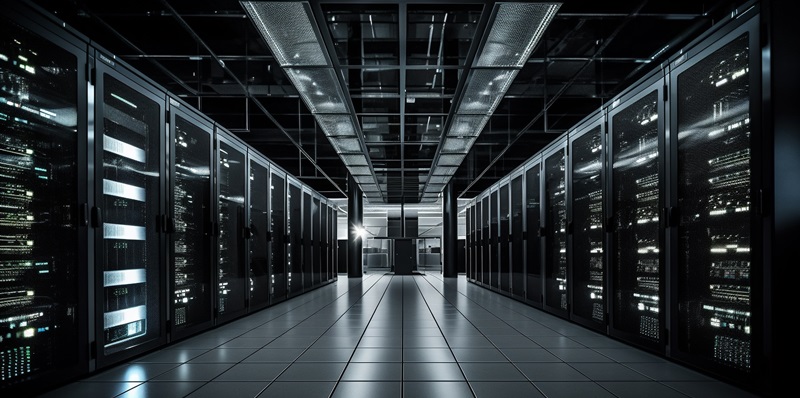Lunar Digital, a renowned provider of data center solutions, has undertaken an ambitious multi-million-pound project to upgrade the Reynolds House data center in Manchester, UK. This significant investment marks an important step for Lunar Digital as it aims to enhance its capabilities and deliver highly efficient colocation services while enabling High-Performance Computing (HPC) solutions in the region. With a strong commitment to sustainability, Lunar Digital is dedicated to pioneering environmentally friendly practices and becoming carbon positive.
Lease Execution
After a long period of negotiations, Lunar Digital successfully executed a 15-year lease agreement, solidifying its presence at Reynolds House. This lease agreement has been the culmination of a year-long endeavor, demonstrating the company’s commitment to expanding its operations in Manchester.
Development Works Begin
On January 3, Lunar Digital commenced development work across all the data halls at the Reynolds House facility. This comprehensive upgrade aims to modernize and optimize the infrastructure to meet the increasing demands of businesses relying on advanced data center solutions.
Upgrades Overview
The upgrade project encompasses various significant improvements. Notably, the C5 and C6 data halls will undergo full renovations, enhancing their capacity, security, and efficiency. Additionally, Lunar Digital will introduce cutting-edge cooling solutions specifically designed to cater to the needs of HPC and AI customers. This upgrade ensures that Lunar Digital can meet the escalating computational requirements of modern businesses.
Investment Value
The exact monetary value of the Reynolds House data center upgrade has not been disclosed. However, Lunar Digital has referred to it as a “multi-million-pound” investment, highlighting the substantial commitment made to deliver state-of-the-art infrastructure and services to its customers.
Objectives of Lunar Digital
Lunar Digital’s primary objective with the Reynolds House upgrade project is to provide highly efficient colocation services that enable businesses to leverage HPC solutions. By creating a robust and technologically advanced data center facility, Lunar Digital aims to support the growth and innovation of Manchester’s digital landscape.
Commitment to Sustainability
Mark Sedgley, Chief Commercial Officer at Lunar Digital, places considerable emphasis on the company’s commitment to sustainability and achieving carbon positivity. Throughout the upgrade process, Lunar Digital ensures that energy-efficient systems and practices are implemented to minimize the environmental impact of the data center.
Lunar Digital’s Announcement
The news of Lunar Digital’s intent to take over Reynolds House was first announced in February 2023. Since then, the company has diligently worked towards securing the lease and making necessary arrangements for the comprehensive upgrade.
Facility Description
Reynolds House comprises two data centers with a combined capacity of 3MW. This robust infrastructure ensures that Lunar Digital can cater to the evolving needs of businesses by providing scalable and reliable colocation services.
Lunar Digital’s IT Footprint
Currently, Lunar Digital, as part of the Lunar Group, boasts an extensive IT footprint of over 35,000 sq ft across three facilities in Manchester. With the Reynolds House upgrade, Lunar Digital fortifies its position as a leading provider of data center solutions in the region.
Lunar Digital’s multi-million-pound upgrade of the Reynolds House data center in Manchester signifies a significant milestone for the company’s expansion plans. By investing in state-of-the-art infrastructure and sustainable practices, Lunar Digital aims to deliver highly efficient colocation services and enable HPC solutions, ensuring it remains at the forefront of the evolving digital landscape in Manchester. Through its commitment to sustainability and becoming carbon positive, Lunar Digital sets a compelling example for the industry as it paves the way for a greener and more energy-efficient future in data center operations.

